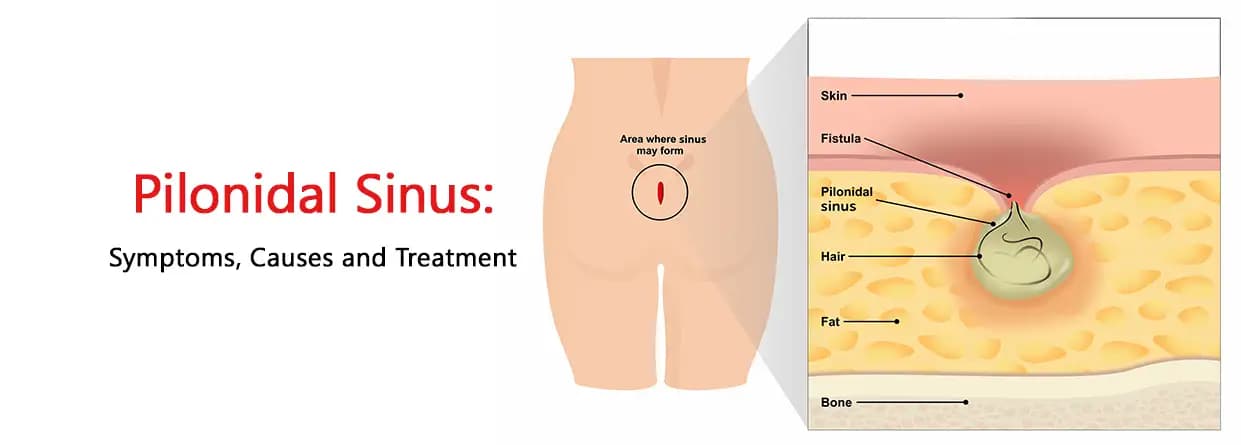
A pilonidal sinus is a small cyst or hole in the skin. It mostly occurs near the tailbone at the top of the buttocks. The meaning of the word "pilonidal" is "nest of hair."
Pilonidal sinus is around 2 times more prevalent in men than women, but everyone is required to pay attention to the symptoms.
You must be wondering about the severity of this condition. But do you know, although this condition may sound concerning, it is manageable with proper care and treatment? Let’s explore more about it in this blog, where you will get all your answers related to: What is pilonidal sinus? How does it happen? Can it be treated or managed? How serious is this condition? If you're experiencing any such problem, don't ignore it. Contact at CMRI Hospital, Best General Physician In Kolkata today for expert consultation and treatment.
A pilonidal sinus is a small cyst or hole in the skin. It mostly occurs near the tailbone at the top of the buttocks. The meaning of the word "pilonidal" is "nest of hair." As the name suggests, it often contains hair and occurs when hair penetrates the skin to form a hole. This hole or cyst, over time, can accumulate pus and dirt. It can become infected if not treated, leading to pain, infection, and swelling. The condition is more common in young men and individuals who sit for long hours.
The signs of pilonidal sinus can vary if the cyst gets infected. In the early stage, an individual may feel a small pit in the skin. However, over time, the following symptoms can be observed:
The exact cause of pilonidal sinus is still unclear, but some factors are believed to contribute to it:
Treatment options depend on the severity of the condition. In non-infected cases, simple measures may help manage the pilonidal sinus. However, if the problem is increased and there is a case of infection, then immediate medical consultation is required.
If your condition has become severe and the cyst has become infected, then your doctor may suggest the following treatments:
These are some of the traditional tips that can help if your condition is not severe.
At CMRI, Kolkata, we offer expert care for pilonidal sinus, utilising advanced surgical techniques and personalised treatment plans to ensure the best outcomes. Our team of skilled surgeons and healthcare professionals provide comprehensive post-treatment support, focusing on a smooth recovery and long-term health. Book your consultation here: (Booking link)
The person suffering from pilonidal sinus may experience irritation or discomfort, but the condition is manageable. All you need to do is not ignore your symptoms and consult your healthcare professional before this condition turns into complications. Right care, early detection, and timely treatment can improve your recovery, and you can lead a normal life without major difficulties.
You can follow the below tips to prevent pilonidal sinus:
Not always. In certain cases, lifestyle changes can help ease your symptoms. You should maintain good hygiene, regularly remove hair, and use warm compresses to get relief. However, if your condition gets worse, your doctor may perform surgery to prevent further complications.
In most cases, pilonidal sinuses are not cancerous. However, there is a rare possibility of squamous cell carcinoma, in the occasions of prolonged untreated sinuses. This is a form of skin malignancy.
Written and Verified by:

Dr. Debashis Mukherjee is a Consultant in General Surgery Dept. at CMRI, Kolkata, with over 32 years of experience. He specializes in breast, colorectal, and general surgery, including appendectomy, hernia repair, and cancer surgeries.
© 2024 CMRI Kolkata. All Rights Reserved.